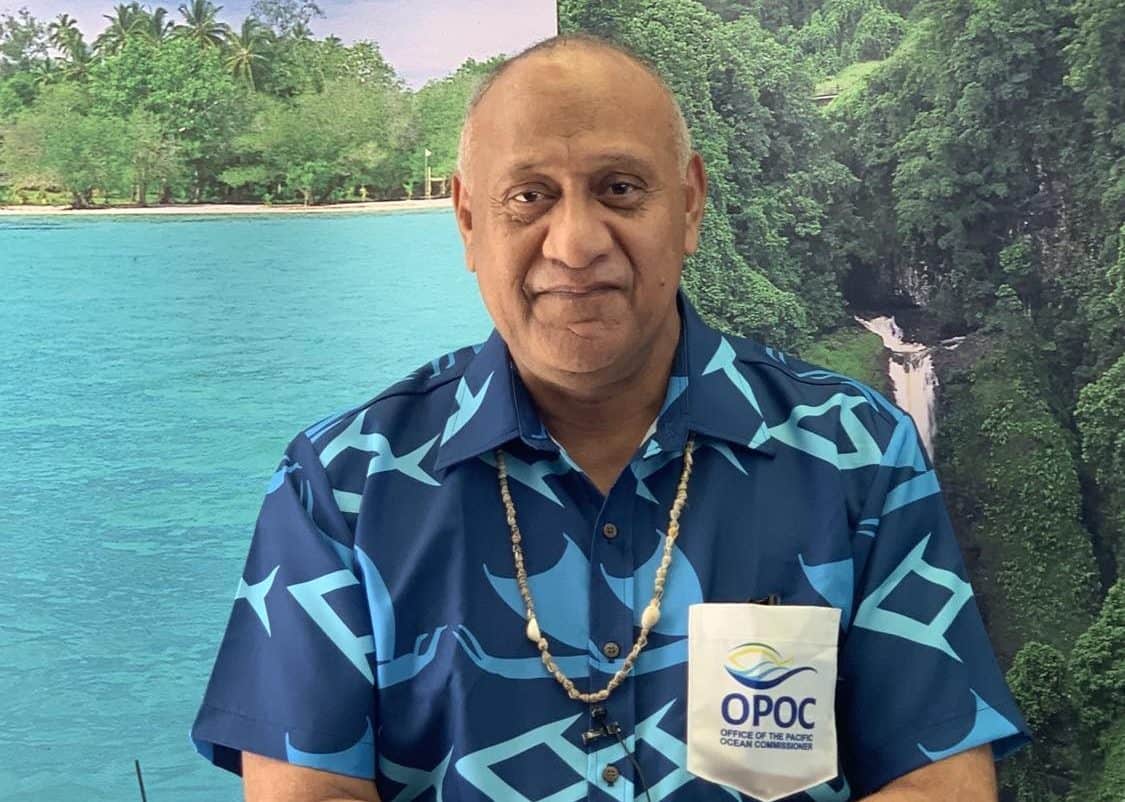The new Pacific Ocean Commissioner, Dr Filimon Manoni says the support expressed for his office and appointment from Pacific Islands regional agencies, is good news for ocean governance, and for him personally.
The decision to create a stand-alone Office of the Pacific Ocean Commission (OPOC) in Palau and appoint a dedicated Commissioner, was driven by political expediency; the need to keep the Pacific Islands Forum intact, and its Micronesian members as part of the regional grouping.
United Nations Secretary-General’s Special Envoy for the Ocean, Peter Thomson says he is pleased the position and office now has a dedicated leader, and Dr Manoni says it was good to hear the commitment from other regional organisations for the work of OPOC.
As one of his first acts, Dr Manoni has convened the Ocean Governance Dialogue, saying: “I want to listen, I want to learn, and I want us to talk. Almost every week, we hear of a new report that tells us the ocean is warming, sea levels are rising, fish stocks are depleting, pollution, including plastic, is growing and spreading in our foods and bodies. Last week’s State of the Climate in Southwest Pacific Report is one of so many such reports. We hear the climate is warming, the gulf stream may be collapsing in a couple of years. We do not need the reports. We see islands burning. We see our fish getting smaller and our catches diminishing. We see the debris floating. We see our shores eroded. We see. We know. We feel distraught and fear for our security, sovereignty, and future. “
But he has urged delegates to the conference to have “hope and ambition”, citing recent achievements relating to the BBNJ agreement on biodiversity, and the WTO agreement on fisheries subsidies.
Palau will be the new home of OPOC, and the nation’s Minister for Agriculture, Fisheries and Environment, Steven Victor says OPOC’s transition may mean it is “necessary to explore independence of the office as institution [so it can] grow and evolve to effectively coordinate support for our region’s growing ocean and policy governance needs.”
Victor says while the recently concluded BBNJ negotiations (on the conservation and sustainable use of marine biological diversity of areas beyond national jurisdiction) are a ‘win for the ocean’, the need for coordination and advocacy continues.
“As the Pacific we have shown our solidarity to each other and we need to call on upon the same solidarity to collaborate on our ocean dialogues,” Victor said.
Peter Thomson said from the start, OPOC has had “powerful potential.”
He describes the appointment of Dr Manoni, and OPOC’s move to Palau as a new chapter, adding, “We must enter this new chapter in the most positive of spirits, for the challenges ahead are like mighty swells bearing down upon us.”
He urges the region’s governments and institutions, should “give the Commissioner the space and the respect he needs on the global stage for his new role.”
